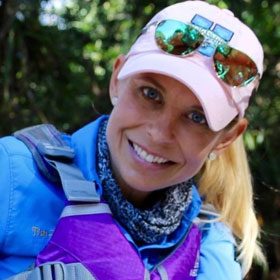4 Commitments Every Great Fishing Mentor Makes
By Debbie Hanson
Nov 28, 2014
In addition to the feelings of elation and accomplishment that came along with the experience of catching your first fish, I’m sure you have fond memories of the person who was by your side when it happened.
In addition to the feelings of elation and accomplishment that came along with the experience of catching your first fish, I’m sure you have fond memories of the person who was by your side when it happened. You might also have some recollection of your first few awkward and wild casts, which eventually turned into casts that gracefully placed your bait right onto the edge of a submerged rock pile… thanks to the guidance and encouragement from a special fishing mentor.
There are so many reasons to teach a kid to fish — they learn to love the outdoors, get fresh air, develop new skills and can take a break from digital devices. If you also are an angler who is ready to take on a mentoring role, you may want to read about the four commitments that all great mentors make when teaching fishing to a beginner or when sharing the angling experience with future generations:
To provide education about fishing safety. Great fishing mentors know that safety comes first in all fishing situations. Teach beginning anglers the importance of dressing properly for the weather, why they need to wear a personal flotation device (PFDs), how to use caution around the water, and how to responsibly use fishing equipment such as hooks and pliers.
To pass along fishing conservation knowledge and skills. The most reputable fishing mentors place a strong emphasis on conservation practices. Proper catch and release techniques, knowledge of fishing regulations or laws, and a respect for our natural resources should all be part of the ethical angling habits that are passed along to new anglers.
To share a passion and enthusiasm for angling. The best fishing mentors know that passion and enthusiasm are contagious. They always maintain a positive attitude (even when the fishing is slow), and look for new opportunities to educate beginners about fish habitats, other wildlife, and how the weather can affect fishing. The excitement that great mentors show help others to understand that there is more to appreciate about the experience of fishing than just the catching.
To offer guidance and encouragement. Just as when someone is learning any new skill or sport, it can be easy for a beginner to get discouraged.. Great mentors explain that mistakes are part of the learning process and provide gentle guidance. They know that all good anglers have spent hours on the water refining their skills, so they are sure to give positive feedback when a new skill is learned.
If you have experience teaching kids fishing or fishing for beginners, what commitments have you made to pass an ethical angling philosophy onto future generations? Share your comments and commitments on the Take Me Fishing Facebook page.
There are so many reasons to teach a kid to fish — they learn to love the outdoors, get fresh air, develop new skills and can take a break from digital devices. If you also are an angler who is ready to take on a mentoring role, you may want to read about the four commitments that all great mentors make when teaching fishing to a beginner or when sharing the angling experience with future generations:
To provide education about fishing safety. Great fishing mentors know that safety comes first in all fishing situations. Teach beginning anglers the importance of dressing properly for the weather, why they need to wear a personal flotation device (PFDs), how to use caution around the water, and how to responsibly use fishing equipment such as hooks and pliers.
To pass along fishing conservation knowledge and skills. The most reputable fishing mentors place a strong emphasis on conservation practices. Proper catch and release techniques, knowledge of fishing regulations or laws, and a respect for our natural resources should all be part of the ethical angling habits that are passed along to new anglers.
To share a passion and enthusiasm for angling. The best fishing mentors know that passion and enthusiasm are contagious. They always maintain a positive attitude (even when the fishing is slow), and look for new opportunities to educate beginners about fish habitats, other wildlife, and how the weather can affect fishing. The excitement that great mentors show help others to understand that there is more to appreciate about the experience of fishing than just the catching.
To offer guidance and encouragement. Just as when someone is learning any new skill or sport, it can be easy for a beginner to get discouraged.. Great mentors explain that mistakes are part of the learning process and provide gentle guidance. They know that all good anglers have spent hours on the water refining their skills, so they are sure to give positive feedback when a new skill is learned.
If you have experience teaching kids fishing or fishing for beginners, what commitments have you made to pass an ethical angling philosophy onto future generations? Share your comments and commitments on the Take Me Fishing Facebook page.
Popular Posts









